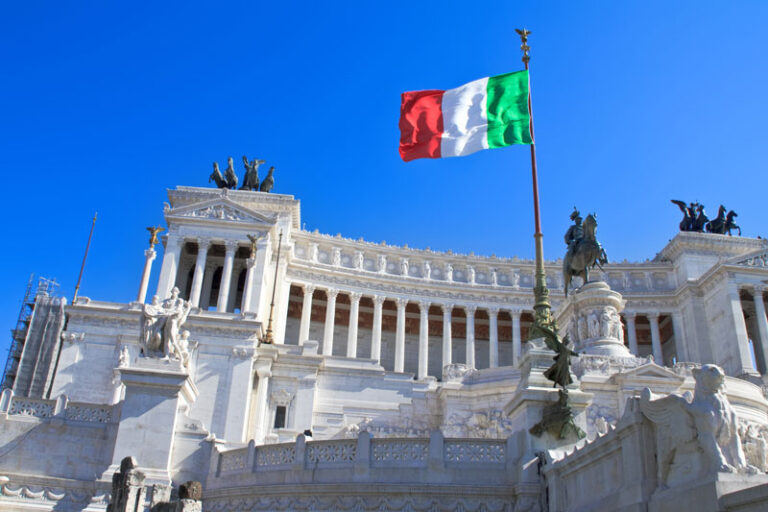
Few people in the UK are unaware about Brexit, the result of the public vote from June 2016. The official departure of the UK from the EU occurred on January 31, 2020, but things are currently in a transition period which will end on December 31, 2020.
Now that Brexit has been approved and laws are changing, many UK citizens are losing their EU citizenship. If you’re one of them, you might be wondering how to keep your EU citizenship after Brexit. For those that are British and want to keep an EU passport to have more freedom of choice and opportunity, you may have a chance to apply for an Italian dual citizenship, which gives you the same advantages of an EU passport.
Wondering where you stand and what you can do about it? If you’re concerned about losing your EU status and have Italian descent, you may qualify for Italian citizenship which will allow you to obtain an EU passport after Brexit. Italian citizenship rules after Brexit will apply regardless of your UK Brexit law changes.
What You Need to Know About How to Keep an EU Citizenship After Brexit
For British citizens that are currently registered as Italian residents by the end of this transitional period, you will be allowed to stay in Italy. You are not required to obtain a visa. This provides you with access to the universal health care system, education system, and work freely in Italy.
It’s important to note though that you become a registered resident of Italy after you complete the citizenship application, are approved and registered with AIRE. You’ll need to do this with the Resident Register (“Ufficio Anagrafe del Comune” in Italian) at the local counsel near you. You must officially register in order to get a passport.
What If I’ve Lived In Italy For Years Though?
Let’s say you’ve been residing in Italy for a minimum of 5 years. If so, you are eligible to get a permanent residence permit. If you’re shy of the 5-year requirement, you don’t need to go sadly packing your bags just yet. Those living in Italy for less than 5 full years can apply for a temporary permit which stays valid for 5 years.
To do this, you’ll need to head to your local police station to apply with for the permit before that end-date of December 31, 2020. Whatever EU residency you currently have will remain valid until you receive the new one.
It’s fairly simple to file the application yourself. You’ll need to prove that you’re living there by showing a property lease agreement, a purchase contract on a property, or a letter from an Italian host. On average, it will take from 2 to 5 days for them to process your paperwork and you’ll get to retain your status as a resident of Italy.
You’ll need to actually be living in the address that you provide however. The local police will check for themselves sometime between the day after your application for residence is filed on up to 45 days later. You’ll likely have your application turned down if you fail this process.
What If I Never Registered As An Italian Resident?
Perhaps you came to visit Italy and fell in love. It certainly happens often enough! But if you didn’t register as an Italian resident, you don’t have to worry about a travel or work visa…not until the last day of December in 2020 that is.
After that, all the typical immigration provisions will apply to you as a non-EU and non-Schengen State citizen. That means that as a British citizen without EU standing, you can stay in Italy up to 90 days with a UK passport. You may also come back, but your 90-day stay is limited to a period within 180 days. In other words, you can’t do a visa-run and come right back.
This is why understanding Italian citizenship rules after Brexit can be helpful to your case. If you’re British and want to keep an EU passport, you should check with Italy for dual Italian citizenship if you have Italian descent.
How Do I Get AN EU Passport After Brexit?
The topic of Brexit and Italian citizenship can be a little complicated. If you wait until after this transition period ends and turn up on January 1, 2021, you need to apply for a visa. You’ll have to do this at the Italian Consulate in your country of residence.
Things get a little more tedious and expensive, when you wait until after December 31, 2020. It’s far better to be an EU citizen applying for an Italian residence permit. But if you’ve waited, it’s good to know you still have a chance of getting dual Italian citizenship. It just won’t be as simple as before.
Your application will be reviewed and if you are awarded your visa, you can apply to get a permit to stay. And yes, you’ll need to wait for that permit to be granted as well. You can apply for Italian residence after that.
Getting Italian Dual Citizenship After Brexit
Luck will surely be on your side if you’re British and married to someone who is a citizen of the EU or a Schengen State citizen that has registered already as a resident of Italy. You could then apply to get a long stay permit while you’re in Italy, thus skipping the paperwork involved in the visa application step as long as you live with your spouse.
British and married to someone of EU or Schengen State citizenship? If they’re registered as a resident in Italy, you could apply to get a long stay permit and cut out the visa application step from the process. If you’re not married, there are other ways to acquire Italian citizenship. However, due to Brexit, there are some changes for those seeking it through naturalization.
What Are The New Rules For Italian Citizenship By Naturalization For UK Citizens?
For UK citizens, you could be eligible to get dual Italian citizenship after living in Italy for the determined amount of years when applying through naturalization. If you are still an EU passport holder and you’ve been living in Italy for a minimum of 4 years, you can take advantage now and apply for Italian citizenship. You will want to act on this immediately as that end date of the transition period is drawing ever closer by the day. Without your EU status backing you, if you wait until after that date, you will be looking at 10 years naturalization time.
If you’re a citizen of the UK and you’ve registered as a resident in Italy with 4 solid years of living there, your application will be looked at like any other EU citizen as long as it has been submitted before the final day of 2020.
Don’t drop the ball on this for December 31, 2020 isn’t here yet. Waiting will mean that your options are more limited, unless you’ve been a legal resident in Italy for 10 years. Those years you spent living in Italy before the Brexit situation took place will count in your favor so if you’ve been calling Italy home for a good many years, you’ll be locked in.
According to Italy’s Decreto Brexit, put into print before Brexit went down, Article 15.1 states that British citizens can apply if they’ve been residing in Italy as a legally registered resident for 4 years if the application is put in prior to December 31, 2020.
Getting Italian Dual Citizenship Through Marriage
As there are quite a number of UK citizens currently residing in Italy, it stands to reason that if you’re one of them, you’d like to stay or at least keep your options open. Italy is one of the countries that allows dual citizenship if you meet the requirements through descent or by marriage.
One way to obtain an Italian dual citizenship should you not have enough years of Italian residence behind you when Brexit goes into full effect is by marriage or civil union to an Italian citizen. We’re not suggesting you run out and marry the first Italian you bump into on the road. However, if you’re in a harmonious relationship with an Italian, you can apply for citizenship once you’ve met the legal requirements.
There will be paperwork, and it will take about 2 years for the process to be complete. If you’re living outside of Italy while married to your Italian spouse, it will be slightly longer at 3 years.
But if love isn’t on your side or the one you love is also a UK citizen, then how can you keep your EU citizenship after Brexit? Fortunately, there is one more way to do it!
Getting Italian Dual Citizenship Through Ancestry
Now might be a good time to dust off the family tree and take a look for any Italian-born relatives. At the very least, it will be an interesting history lesson. And if you’re in luck, you’ll be able to trace your lineage down to an Italian ancestor.
You must be able to prove your citizenship line wasn’t interrupted in any way. Things like renouncing Italian citizenship in favor of another country can make you ineligible for getting Italian dual citizenship through ancestry.
The key is finding the paternal or maternal link through Jure Sanguinis, the right of blood.
Want To Keep EU Citizenship After Brexit? Contact us
If you want to keep up your EU status and have Italian ancestry, you may qualify for Italian dual citizenship.
Italian dual citizenship is highly-coveted because of the benefits including the healthcare system, education, quality of employment opportunities, and the overall quality of life. It’s a beautiful country to wake up to every day. By getting dual citizenship, you’ll avoid the fallout that will happen on December 31, 2020.
But you’ll have to get busy filing those papers. If you’ve already had your Italian residence permit in place, you’ll want to hurry and get everything in order. Even if you just moved to Italy last year, you can get the permit and it will cover you for 5 years which will, in turn, allow you to navigate the paperwork to a more permanent status.
Time spent living in Italy will bode well on your side. Without that though, marrying your Italian sweetheart or finding a solid bloodline on your paternal side will help secure your future in Italy with dual Italian citizenship. Paperwork can be challenging so contact IDC to get the process started before the end date arrives!
This page was last updated by Jason LoPresti
Additional Resources:
- How to apply for Italian citizenship
- Italian citizenship by descent in South Africa
- Italian citizenship Brazil, Argentina, and South America
- I want to become an Italian citizen
- Dual citizenship in Italy and Canada
- Italian citizenship in Italy and Australia
- How do I renew an Italian passport
- requirements for getting Italian citizenship
- How to get Italian citizenship through great grandparents
- Italian citizenship 1948 case





